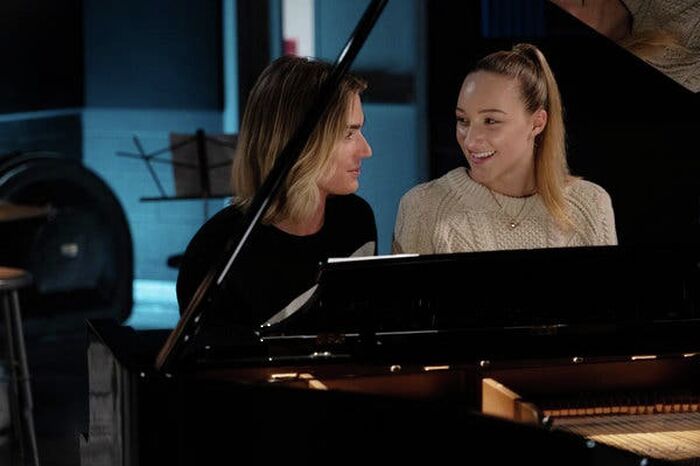We should have kept Downton Abbey on telly
Watching the nostalgic television staple’s swerve into cinema, Nicholas Harris finds the film can’t quite shake off the small screen

Familiar theme music returns to chime plaintively at the close of each scene. Lady Mary is somehow even more bored of her own hauteur. Lady Edith is mopey again, this time about her husband. There are enough costume changes to clothe an entire series of another period drama (have these people heard of sustainable fashion?).
If your life has felt impossibly empty since the end of Downton Abbey in 2015, fear not, it’s back! Not on the telly for free, but instead at the cinema for money. So slightly different from last time, but don’t worry — nothing has really changed. To paraphrase Philip Larkin, what seems cinematic addition has resulted in actual dilution.
Everyone lives in some fairy-tale version of the 1920s; most characters are rich, and the ones that aren’t don’t really seem to mind. Everything not in stately homes happens in villages that look like Chipping Norton and absolutely no-one smokes (even Mr Barrow has given up — I guess American audiences found it a bit risqué). There is one reference to the 1926 General Strike as if to say ‘you are watching a real, historical film’, but the overall tone is fantastically bucolic.
“Despite the larger budget, the film feels like a particularly forgettable Christmas special”
Who’s new? There’s a twinkly, balding grocer, and a strapping, D.H. Lawrence-esque plumber. There’s a miserable young royal couple with their own brood of toff-spawn dressed in sailor suits. Tuppence Middleton plays lady’s maid to Imelda Staunton’s Lady Bagshaw. There’s a kleptomaniac maidservant, as there always is. Just the clones and doppelgangers of previous series’ minor characters, but without any steady introduction and shaping over several episodes. Instead these characters, some of whom turn out to be cousins of the Crawleys, are plonked into the story without so much as a by your leave.
Which all sounds, and is, rather risible. Coupled with the general silliness is the quite unfortunate assumption that everyone seeing the film is completely up to date with the television series. The truth is that everyone paying to see the film probably is, but if you don’t know who the original characters were, tough luck. No time is wasted in introducing a whole host of new ones. Fans will have seen most of it before: a lady’s maid with a murky past, jostling for position among the servants, the testing of one’s loyalty to self versus family. Same old Downton.

Generally, in T.V-to-film transfers, the characters are plunged into a set of circumstances far removed from the norm — travelling abroad, for instance. It’s often some scenario which showrunners had been desperate to sketch but which was impossible to do justice to in a series’ worth of fixed-length episodes. Not so with Downton Abbey. Instead, despite a presumably inflated and film-worthy budget, we are treated to a Christmas special and not even a particularly memorable one. The main plot revolves around the visit of the King and Queen to Downton, but this is treated in such an inconsequential way that it doesn’t actually elevate the film beyond its small-screen origins. The pair of episodes set in London during the summer season provided a more lavish and dramatic backdrop in comparison.
Thematically, the atrophy in substance throughout the programme’s run has only continued. Gone are the days of legal disputes over entails, of heirs paralysed in world wars, of a lord’s daughter bearing illegitimate children. Once upon a time, Downton at least attempted to portray its era, with potted caricatures of newspaper barons and bankrupt peers. Not so in this film. There’s some token talk about how they will possibly maintain the Abbey in the modern age, but Mr Carson is there to reassure us all that in a hundred years the Crawleys will still reside at Downton. Doubtless, in 2027 the Abbey would actually either be the holiday home of a Russian oligarch or a public school for the education of his sons. But here, it is the barely-questioned sentiment that counts: the Crawleys have an inalienable right to the Downton estate.
Indeed, much like the later series, none of it would be worth watching if it weren’t for Maggie Smith’s turn as the Dowager Countess. She steals every scene she is in, honking and hissing all the best and most cutting lines. The rest of the cast, though, is terribly underworked, with Hugh Bonneville and much of the ensemble cast on televisual autopilot. Lightweight plotlines whizz by at breakneck speed only to be neatly resolved in the last twenty minutes. This would have worked much better over several weeks as an additional television series.
Downton Abbey will truly interest only taxonomists of 1920s fashion, and truly insult only readers of the Morning Star. For the rest of us, it won’t do very much at all.
 Features / Should I stay or should I go? Cambridge students and alumni reflect on how their memories stay with them15 December 2025
Features / Should I stay or should I go? Cambridge students and alumni reflect on how their memories stay with them15 December 2025 News / Cambridge study finds students learn better with notes than AI13 December 2025
News / Cambridge study finds students learn better with notes than AI13 December 2025 News / Dons warn PM about Vet School closure16 December 2025
News / Dons warn PM about Vet School closure16 December 2025 News / News In Brief: Michaelmas marriages, monogamous mammals, and messaging manipulation15 December 2025
News / News In Brief: Michaelmas marriages, monogamous mammals, and messaging manipulation15 December 2025 Comment / The magic of an eight-week term15 December 2025
Comment / The magic of an eight-week term15 December 2025









